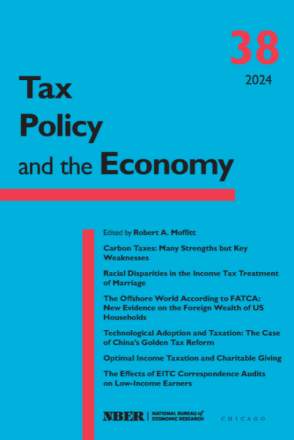The Effects of EITC Correspondence Audits on Low-Income Earners

You may be able to download this chapter for free via the Document Object Identifier.
This paper studies the impacts of IRS EITC correspondence (mail) audits on taxpayer behaviors. Risk-based audit selection presents a challenge for estimating behavioral effects, but this is addressed by exploiting some quasi-randomness in aspects of the audit selection process to approximate a randomized controlled trial. The analysis documents widespread disallowance of EITC benefits due to nonresponse and insufficient response. Relative to similar non-audited taxpayers, audited taxpayers over the years after being audited are less likely to claim EITC benefits and file tax returns, and qualifying children claimed on their returns are more likely to be claimed by other taxpayers. Audited taxpayers also appear less likely to have third-party and self-reported wages, with larger decreases for self-reported wages and for wage levels in the maximum EITC benefit region.
-
Copy CitationJohn Guyton, Kara Leibel, Day Manoli, Ankur Patel, Mark Payne, and Brenda Schafer, Tax Policy and the Economy, Volume 38 (University of Chicago Press, 2023), chap. 6, https://www.nber.org/books-and-chapters/tax-policy-and-economy-volume-38/effects-eitc-correspondence-audits-low-income-earners.Download Citation


